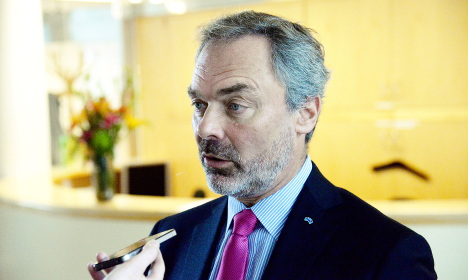“Forming a government without the Green Party will make it easier for us to cooperate across the political boundaries,” Björklund told Swedish Radio.
Björklund said that he believes that it would be easier for the Social Democrats to agree with the centre-right Alliance parties on several issues if the government was purely Social Democratic.
“There will always be part of his party that will be more to the left than Löfven but that does not mean that he must come to terms with them on every single issue.”
“It would facilitate compromise between the political blocs if Löfven was willing to undertake a cabinet reshuffle in which he lets the Green Party leave the government.”
Löfven last night called the decision by the centre-right opposition to abandon a political deal with his government as “extraordinarily irresponsible in a difficult time”.
Speaking at a press conference, Löfven said the move could create political and economic instability for Sweden and decrease chances of future collaboration.
READ ALSO: What is the December agreement?
Löfven admitted the so-called December Agreement wasn't perfect but said it had been a deal that worked.
“The December Agreement was neither mine nor the government's first choice,” he said. “The best thing for Sweden is, and should be, cross-party cooperation.”
Under the December Agreement, the four centre-right parties, the Moderates, the Liberal Party, the Christian Democrats and the Centre Party, agreed to approve Löfven's budgets in order to sideline the nationalist, anti-immigration Sweden Democrats, who hold the balance of power in parliament.
The agreement fell apart after a grassroots rebellion at the Christian Democrats convention on Friday prompted parliament's smallest opposition party to pull out of the accord — the other centre-right parties quickly followed suit.
Although the opposition would have to unite on a joint budget bill for the government to fall – a very unlikely event – the chances that Löfven will call Sweden's first snap election in more than half a century have been increased.
A new election could also lead to policy stalemate and endanger Sweden's robust triple-A-rated economy.
The party leaders will all participate in a group debate on Sunday night at 8pm on SVT1's Agenda.




 Please whitelist us to continue reading.
Please whitelist us to continue reading.